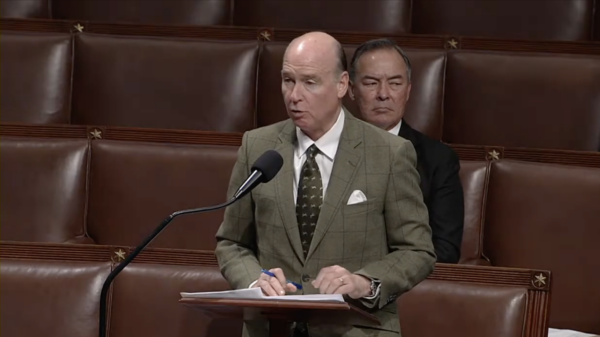By Minority Leader Rep. Craig Ford
When the state Legislature returns to Montgomery in two weeks, one of the top issues will be a cost-of-living pay raise for educators. Both parties agree that the money is there, and now is the time. But there are some major differences between what both party’s are proposing.
House Democrats will propose a 5 percent pay raise for all teachers, support personnel and retirees. The bill some Republicans are working on is much different. It would not only fundamentally change how teachers are paid, but would also create an expensive and intrusive new bureaucracy.
Their bill, called “the RAISE Act,” would do three things: create a merit pay system for educators, change the tenure laws and create a new government agency called the “Longitudinal Data System” that would collect and analyze “individual level student and workforce data” for all students and educators in our K-12 schools and the two-year community college system.
The tenure changes in the bill would require a teacher be employed by the school system for five years instead of the current three. That’s not necessarily a bad thing, but it would permanently end tenure for support personnel. That decision doesn’t make any sense. It undervalues the work our support personnel do, and demoralizes them.
The merit pay system has major problems. The way it would work is that teacher pay raises-and even employment decisions-would be decided based on three things: student test scores, evaluations conducted by principals, and surveys filled out by students and parents.
The biggest problem is its reliance on test scores. There’s a long list of reasons why schools shouldn’t live and die by test scores. To start with, some kids simply don’t test well; that isn’t a reflection on how knowledgeable that student is or how much they’ve learned, or the quality of their teachers provided. Other students simply aren’t motivated regardless of how hard their teachers try.
Standardized tests also don’t take into consideration things like learning disabilities or what that child’s life is like outside of the classroom (poverty and parental support are all major factors in a child’s ability to succeed in school). And standardized tests don’t reflect student growth.
Last, but certainly not least, this creates a situation where teachers end up “teaching for the tests” instead of focusing on the needs of the individual child.
As for principal evaluations, principals already perform observations and evaluations on each teacher every year; those evaluations are taken into consideration when it comes to promotions and tenure, so this part of the law is redundant.
When it comes to student and parent surveys of teachers, these surveys can be useful. But at the end of they day, are they really anything more than a popularity contest?
Parents’ opinions should certainly matter, but they aren’t in the classroom each day to know first hand what’s going on. And young students are still influenced by things like peer pressure and hormones. If we don’t trust children to be mature enough to vote, why would they be mature enough to have such powerful sway over whether a teacher gets a pay raise or fired? And we don’t want teachers to be pressured between trying do their jobs (including making discipline decisions) versus trying to be liked well enough to get good survey responses.
The problems with this merit pay proposal are endless, and we haven’t even discussed the scary part of the RAISE Act: the Longitudinal Data System (LDS).
At best, the LDS is an expensive new bureaucracy that will cost us an untold amount of money. At worst, it is the very definition of “big brother” looking over your shoulder.
The LDS’ job is to collect test scores, disciplinary actions and other data on your child and their teacher. After they collect this data, they will analyze it and make whatever conclusions they come to.
Not only is this a violation of students’ privacy, it is an abuse of power. Teachers will be trying to do their job with someone constantly looking over their shoulder (if a teacher needs that much supervision they probably shouldn’t be teaching anyway!).
That is just too much government!
This proposed law, with its “Longitudinal Data System” and merit pay system is deeply flawed and ripe for abuse. Ask yourself: Would you want to be a teacher if this bill became law? Would you want your child going to a school where everything they did was under a microscope, and being noted and analyzed by some bureaucrat in Montgomery? The people behind this legislation may have good intentions, but they certainly don’t have a good idea.
Rep. Craig Ford is a Democrat from Gadsden and the Minority Leader in the Alabama House of Representatives.




















































